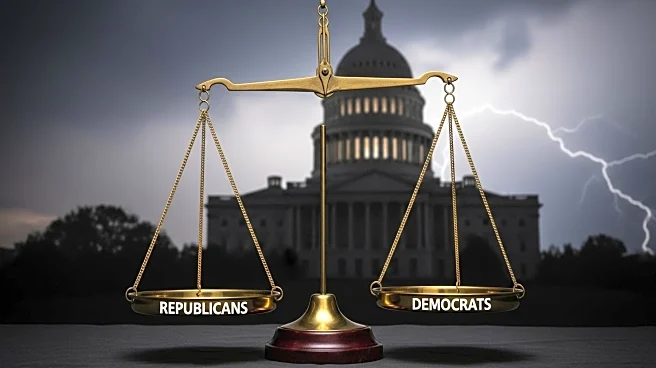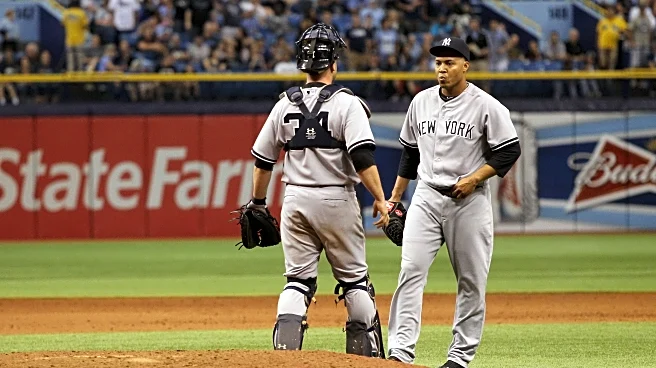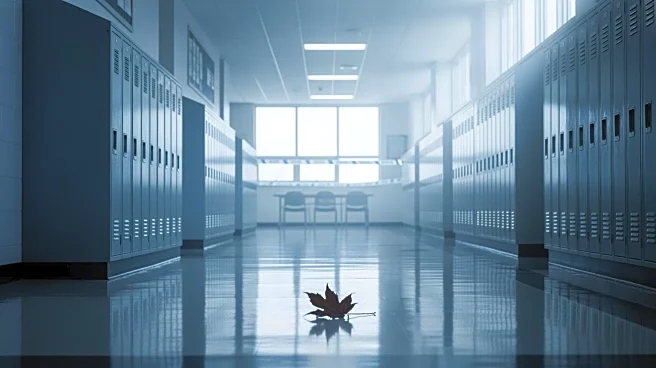What's Happening?
As the deadline for a potential government shutdown approaches, Republicans and Democrats in Congress are engaged in a blame game, each accusing the other of failing to reach a budget agreement. The impasse centers around disagreements on spending priorities and policy issues, with both parties unable to find common ground. This standoff has left federal agencies and employees uncertain about their immediate future, as a shutdown would halt non-essential government operations and potentially delay paychecks for federal workers.
Why It's Important?
A government shutdown could have significant repercussions for the U.S. economy and public services. Federal employees may face furloughs, and essential services could be disrupted, affecting millions of Americans. The political stalemate highlights deep divisions within Congress, which could impact future legislative negotiations and public trust in government. The economic impact could extend to markets and businesses reliant on government contracts, potentially slowing economic growth.
What's Next?
If no agreement is reached, the government will shut down, leading to immediate effects on federal operations. Both parties may face public backlash, which could influence upcoming elections. Negotiations are likely to continue, with potential compromises on spending and policy issues. Stakeholders, including federal employees and contractors, will be closely monitoring developments, hoping for a resolution that avoids prolonged disruption.









